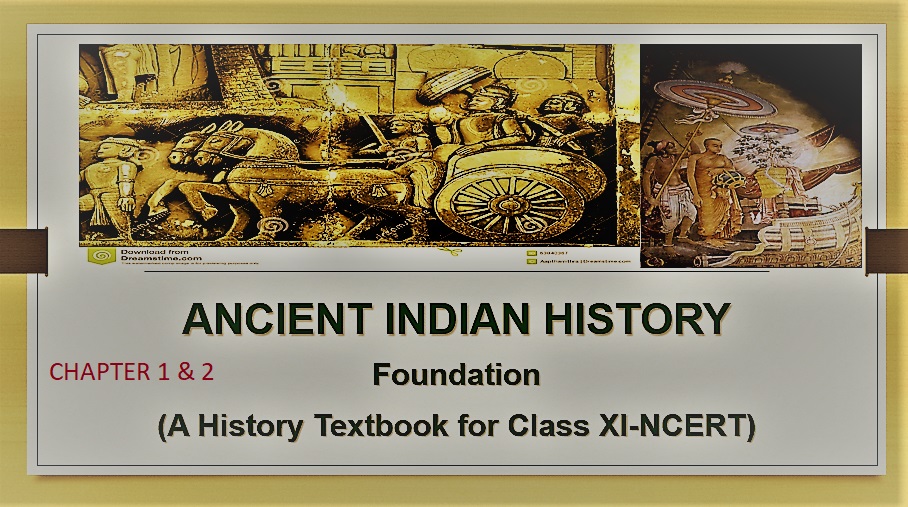Hello friend here we are providing ANCIENT INDIAN HISTORY NOTES NCERT for class 11. These notes help for students preparing for competitive examination like UPSC, UPPSC, JKPSC, KAS, RPSC, SSC and other state psc examination. Most of the objective questions based on logic so there is logical assemble of key points from all NCERT chapter. Its cover UPSC syllabus of ancient history. These information collected by UPSC optional aspirant. here we provide all notes in MS power point also. you can also watch these lecture on YOUTUBE CHANEL HELPING BRAINS.
ANCIENT INDIAN HISTORY NOTES NCERT CLASS 11:
HERE is key point of ANCIENT INDIAN HISTORY NOTES NCERT. lets check below.
WHY TO LEARN HISTORY:
- LEADS TO BELONGINGNESS WITH THE PEOPLE, PLACES, EVENTS OF ANCIENT AGES.
- HELPS US IN UNDERSTANDING HOW TO DEAL WITH THE CURRENT SOCIO-ECONOMIC, SOCIO-POLITIC, GEO-ECONOMIC, GEO-POLITIC SITUATIONS ON THE BASIS OF THE EVENTS OF THE PAST.
Read also: UP primary teacher 69000 result and counseling date
CHAPTER-1 ANCIENT INDIAN HISTORY NOTES NCERT CLASS 11:
This is NCERT chapter number 1 thats tell about importance of Indian history
The Importance of Ancient Indian History:-
- IT ANSWERS VERY FUNDAMENTAL QUESTIONS THAT COMES IN OUR MIND:-
- A) HOW THE EARLIEST INDIAN CULTURES GOT DEVLOPED?
- B) WHEN THIS EARLIEST CULTURE WAS DEVELOPED?
- C) WHAT WAS THE AREA WHERE THIS CULTURE WAS DEVELOPED
- IT PROVIDES THE DETAILS HOW THE ANCIENT INDIANS BEGAN TO :-
- A) PRACTICE AGRICULTURE
- B) UTILIZING NATURAL RESOURCES
- C) CREATING SETTLEMENTS
IT ALSO PROVIDE THE DETAILS ABOUT THE SCRIPTS OF ANCIENT INDIANS (People are not considered civilized unless they know writing)
Unity in Diversity:-
Foreigners (i.e. pre-Aryans, Indo-Aryans, Greeks, Hunas, The Turks etc.) came into Indian Land and contributed in the evolution of indian society. All these people and their cultural traits got mixed with one another.
NCERT Chapter-2 (Modern Historians of Ancient India)
This lesson about historians of Ancient india.
Colonialist Views and Contributions:-
- William Jones (1746-1794), a civil servant of East India Company: emphasized the point that originally European languages were very much similar to Sanskrit.
- In the 1st half of 19th century, Sanskrit centres were set up in England and several other European countries.
- The greatest push to Indological studies was given by the germen-born scholar F. Max Muller (1823-1902).
- The Sacred Books of the East Series was published under F. Max Muller. This book predominantly contains the ancient Indian texts and some of the Chinese & Iranian texts as well.
- In line with these works western scholars including Max Muller made certain generalizations about ancient Indian society. They stated that ancient Indians lacked a sense of history especially of the factor of time and chronology.
- Many of the generalizations appeared in Early History of India by Vincent Arthur Smith (1843-1920), who prepared the first systematic history of ancient India i n 1904.(His approach towards history was pro-imperialist)
- Alexender’s invasion accounted for almost 1/3rd of his book.
- 1765: West Bengal & Bihar came under the rule of the East India Company. They found it difficult to administer the Hindu law of inheritance.
- 1776: “Manusmriti” was translated into English as “A Code of Gentoo Laws”.
- 1784: Asiatic Society of Bengal was set up by a Civil Servant of the East India Company, Sir William Jones (1746-1794).
- 1785: Bhagvadgita was translated in English by Wikins.
- 1789: William Jones translated the Abhigyanam-shakuntalam into English.
- 1804: The Bombay Asiatic Society was set up.
- 1823: The Asiatic Society of Great Bretain was set up in London.
